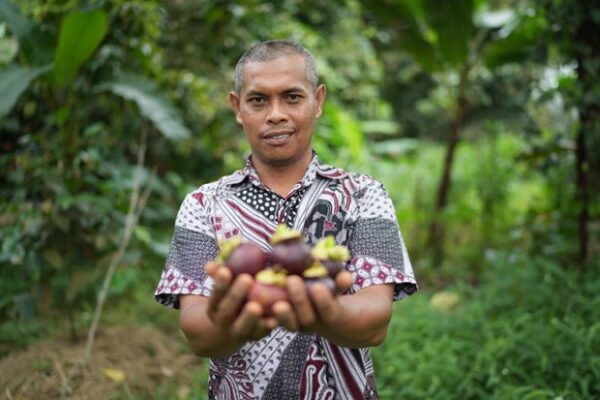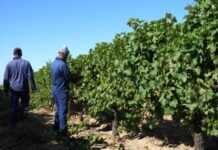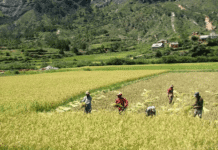The UN’s International Fund for Agricultural Development (IFAD) and the Government of Indonesia signed a new initiative aimed at transforming dryland farming to make it more climate-resilient and profitable, bolstering the livelihoods of over 200,000 farmers over the next five years. The Horticulture Development in Dryland Areas Sector Project (HDDAP), co-financed by the Asian Development Bank, aims to elevate food availability, accessibility, and quality, while building resilience to climate change.
“HDDAP marks a significant step forward in transforming Indonesia’s agriculture sector by empowering small-scale farmers to adapt to climate change, increase their incomes, and produce more nutritious food for their communities,” said Hani Abdelkader Elsadani, IFAD Country Director for Indonesia. “IFAD is proud to partner with the Indonesian government and the ADB to implement this innovative project, which aligns with our commitment to sustainable agriculture and rural development.”
Indonesia is a fast-growing country with a large and diverse population. Agriculture plays a significant role in the Indonesian economy, employing a third of workforce – around 38 million people. Most farmers are smallholders working on less than one hectare of land. Poverty is more pronounced in rural areas and farming households are 3.5 times more likely to be poor – and vulnerable to climate-related shocks – than non-farming households. Poverty, regional disparities, and climate change pose huge challenges, with rising sea levels, erratic rainfall patterns, and intensifying extreme weather events threatening the livelihoods of millions of farmers and jeopardizing food security. Dryland farmers are particularly disadvantaged due to their remote location. They have no access to irrigation and are hampered by weak local institutional capacity and limited access to inputs, technology and finance.
HDDAP is designed to address Indonesia’s climate change challenge in 13 districts across North Sumatra, West Java, Central Java, East Java, Bali, East Nusa Tenggara, and South Sulawesi by promoting climate-smart agriculture practices, improving infrastructure resilience, and strengthening the capacity of farmers and communities to adapt to changing climate conditions. It will introduce drought-resistant crop varieties that can withstand water stress and maintain productivity in drier conditions; train farmers in water conservation practices, such as efficient irrigation techniques and rainwater harvesting, to optimize water use and reduce reliance on rainfall; and promote sustainable farming practices, such as organic farming and agroforestry, to enhance soil health and reduce reliance on chemical inputs.
The project will also invest in upgrading irrigation infrastructure to ensure reliable water access for farmers, even during periods of water scarcity. It will also support building infrastructure such as flood-resistant roads and storage facilities to protect crops and livelihoods from extreme weather events. Farmers will receive training and extension services on climate-risk management strategies, to help them to make informed decisions and adapt their farming practices to the changing climate.
The project also focuses on enhancing production by making available high-quality planting materials and integrating digital technology in seed production. It aims to develop horticulture villages, consolidating small-scale farmers’ efforts, promoting economies of scale, and forming effective farmers’ organizations to produce high-value crops.
HDDAP is funded by a loan of €36.93 million from IFAD and of €78.49 million by ADB, for a total project size of €129.04 million. Since 1980, IFAD has supported 21 programmes and projects in Indonesia for an investment of US$709.50 million, directly benefiting more than 3.9 million rural households. Read more about our work in Indonesia here.








